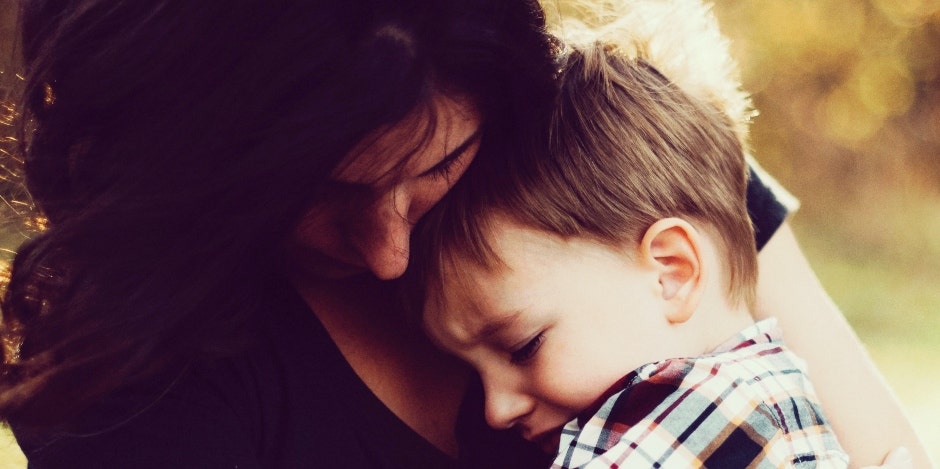10 Tips For Talking To Your Kids About Coronavirus Anxiety
How do you talk to your anxious children about the coronavirus?
 Jordan Whitt/unsplash
Jordan Whitt/unsplash As parents, our kids' mental health is important to us.
But right now, kids are feeling anxious and overwhelmed with all the news they are hearing about the coronavirus( COVID-19).
From hearing on the playground that so-and-so has the virus to wondering, "What happens if I get the virus?", they are being inundated by misinformation about this pandemic, adding to their fear and stress over the situation.
When you first began this journey of parenting, you probably never thought you'd have to talk to your kids about a pandemic or the importance of quarantine and isolation at this time.
As a parent, you're unsure of what information to communicate to your children and how to effectively share details about the coronavirus without scaring them.
First off, realize that you should be the first point of education about the virus because your kids will definitely be receiving quite a bit of misinformation.
Here are 10 tips parents need to know about talking to their elementary school-aged kids about the coronavirus to ease their anxiety.
1. Explain in simplistic terms what the coronavirus virus is.
The coronavirus is a new type of virus related to the flu, one most people experience with mild or moderate symptoms.
There is a low chance that kids would even know they have this virus since most children are asymptomatic. But if they did, they would feel sick for a little bit. But just like other viruses they have had, they will most likely recover and be okay.
2. Focus on reassuring them that they are safe.
Remind them that they have adults in their life who are handling this.
Use a calm, reassuring voice and let them know it is okay to feel scared or have worries about the virus. You are there for them to answer any questions.
3. Explain who is most likely to be affected.
Kids may also have fears and want to know if they can die from the coronavirus.
Explain to your child that most children will not have severe problems if they have the virus since it mostly affects older adults and people who have other health problems.
They may have heard that someone died from the virus. Acknowledge that deaths have happened. However, put this into context that it is a rare occurrence.
4. Focus on what they can do.
The most important thing they can do is wash their hands often, which helps to stop the spread of the disease. Teach and demonstrate to your children how to wash their hands correctly with soap vigorously for 20 seconds.
Choose your favorite song that lasts 20 seconds to help time the washing and minimize any anxiety.
5. Let them continue as they are.
Outside of this pandemic, your kids need to continue being kids and not live in fear.
Let them focus on self-care and what is important in their lives. This is for the good of their mental health as well as your own.
6. Make sure that you are not modeling anxiety and oversharing.
Ensure that you are calm when talking to them about the virus.
Remember, kids are listening to what you have to say and taking your lead with how they should feel about the virus, so make sure they don’t overhear you sharing your anxiety about the virus with family or friends.
7. Limit news viewing.
The news tends to sensationalize what is happening with the coronavirus.
So, listening to the news often leads to increased anxiety in most children.
8. Talk about what the community is doing to keep people safe.
Hospitals and doctors are treating patients and are prepared to handle the virus and help people who are sick.
Therapists are helping kids manage their worries about the virus. Schools are working to minimize the spread of the virus and have a plan in place in case they need to suspend school for a little bit.
9. Be available and check in often.
Talk to your kids about how they are feeling about the coronavirus and answer any questions they may have.
10. Ease their worries about others.
Children are often more worried about others catching the virus than themselves. They may become worried about grandparents when they hear that older adults are more at risk than the young.
Reassure them that grandma and grandpa are taking appropriate precautions, such as quarantine and isolation, and that they can still talk to them on the phone or by video chat to make sure they are okay.
Remember, it is not uncommon that outbreaks happen (such as in 2009 when the Swine Flu broke out).
Assure kids that you will get through this as a family and community, and that they will be okay! Keep checking in with them about what they are hearing about the coronavirus and how they are feeling about it.
If your child is experiencing increased anxiety and fear about the coronavirus, please reach out to a professional for support.
Monica Ramunda is a licensed professional counselor and therapist working with individuals, families, children, and teens. For more information, visit her website.

